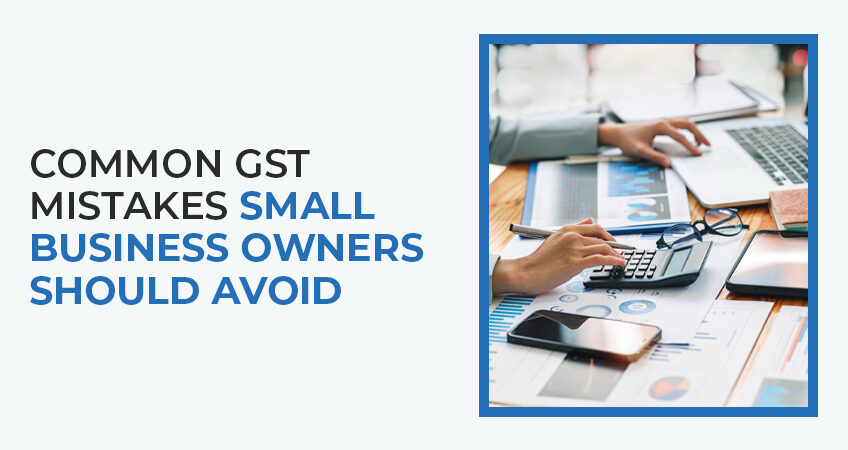
Common GST Mistakes Small Business Owners Should Avoid
Before taking any step ahead to GST process it is important to know some most common mistakes that small business holders often do.
Navigating the difficulties of Goods and Services Tax (GST) can be challenging for small business owners. GST is a value-added tax levied on the supply of goods and services, and while it streamlines the taxation process, it also introduces a set of regulations that can be confusing for those new to the system.
This blog post will discuss common GST mistakes that small business owners should avoid to ensure compliance and smooth operations.
Common Mistakes Small Businesses Should Avoid
Inadequate Record Keeping
Maintaining accurate and up-to-date records is essential for GST compliance. Small business owners often neglect this aspect, leading to errors in their GST returns. Keep detailed records of all sales, purchases, and expenses, as these records will be crucial during audits and can help you claim input tax credits.
Late or Incorrect GST Registration:
One of the primary mistakes small business owners make is delaying or neglecting their GST registration. It is crucial to register for GST once your annual turnover crosses the threshold limit set by the tax authorities.
Failing to register on time may lead to penalties and legal consequences. Additionally, providing incorrect information during the registration process can result in complications.
Ignoring the Reverse Charge Mechanism
Some services and goods are subject to the reverse charge mechanism, where the recipient is responsible to pay the GST instead of the supplier. Small business owners often overlook this aspect, resulting in non-compliance. Stay informed about reverse charge scenarios and fulfill your obligations accordingly.
Incorrect GST Classification
Classifying goods and services under the wrong GST rate can lead to miscalculations. Regularly review the GST rate schedule and update your systems to ensure accurate classification. This practice is critical when dealing with diverse products and services.
Non-Compliance with E-Invoicing
E-invoicing has become compulsory for businesses with an assured turnover, and non-compliance can result in penalties. Ensure that your invoicing systems are aligned with the e-invoicing requirements to avoid interruption in your business operations.
Not putting money aside for GST
It is recommended to put utmost money aside for GST, for better cash flow. A good suggestion is to keep 10% of your taxable goods and services in a separate bank account. If you’re GST registered, you must pay the GST collected from your customers minus the GST paid to the suppliers in the same GST return period.
Let’s see what we’ve concluded from this blog.
Wrap Up
Avoiding these common GST mistakes is crucial for small business owners to maintain an efficient cash flow and minimize the risk of penalties. Keep a track on updates in GST regulations, invest in robust accounting systems, and seek professional advice from one of the Best Accountant when needed.
By staying proactive and attentive to detail, small businesses can navigate the GST landscape successfully and focus on their growth and development.
Contact Tax Purpose for detailed information on GST.



